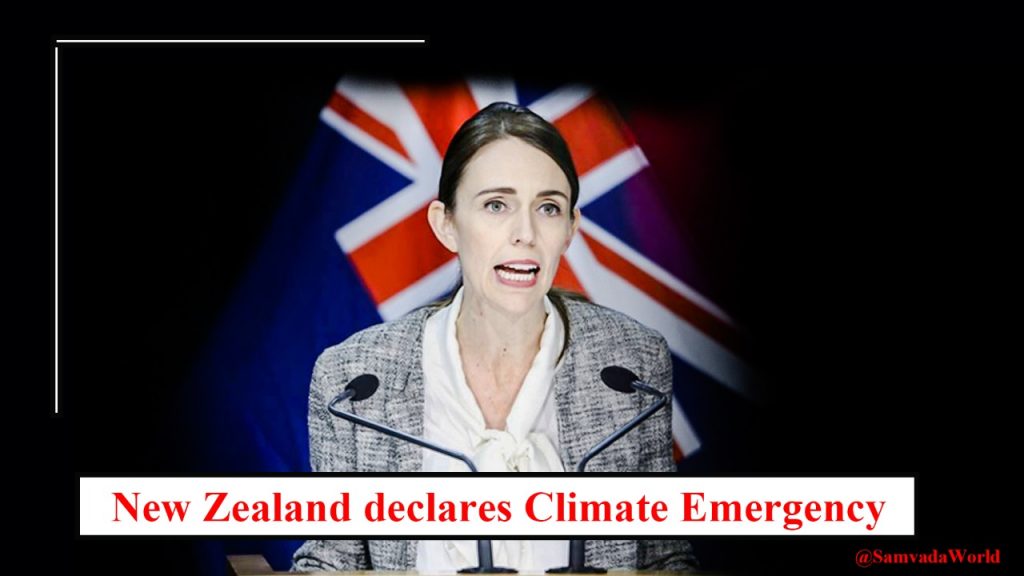New Zealand’s parliament has officially declared a climate emergency in the country. It becomes the 33rd country to declare a climate change emergency and joins the likes of the UK, France, Argentine, Canada and Ireland. Prime Minister Jacinda Ardern during the discussion in parliament called the declaration of climate emergency as an “acknowledgement of the next generation” and said that it was a “declaration based on science”, reports NZ Herald.
The declaration will include passing the Climate Change Response (Zero-Carbon) Amendment Act, which mandates New Zealand to get to net-zero carbon emissions by 2050, as well as setting a price on emissions through the emissions trading scheme. One of the ways the NZ government plans to achieve this is through the Government’s new electric vehicle mandate.
Under the mandate, Government agencies will now be required to optimise their car fleet by purchasing electric vehicles in all areas of government functions. Hybrid vehicles will be used when EVs are not appropriate for the required use, such as for some military purposes. The task is huge, say local reports as there are currently nearly 16,000 vehicles in the NZ Government’s fleet.

In order to bring the change around, the Government will utilize the $200 million State Sector Decarbonisation Fund says the government press release. The Decarbonisation Fund will also be used to phase out coal boilers in its ministries and agencies. There are roughly 200 coal-fired boilers currently heating water and buildings in the State Sector. The phasing out of coal boilers was part of NZ’s carbon footprint goals. The government has said that the largest and most active will be phased out first.
Though the parliament passed the resolution by 76 votes to 43, the opposition was not amused. National MP Nicola Willis was among those who opposed the declaration. She said that though climate change is the greatest environmental challenge of our time, declaring a climate change emergency would not actually decrease global emissions without concrete actions. “My suspicion,” she said during the debate, “is that the Government intends this motion to distract New Zealanders from its incredibly poor track record on climate change.”
National’s climate change spokesman Stuart Smith has said that a climate change emergency without conferring special powers was “merely signalling”.
Before the vote, PM Ardern had said that the Government promised to “show leadership and demonstrate what is possible to other sectors of the New Zealand economy by reducing the Government’s own emissions and becoming a carbon-neutral Government by 2025”. She also promised that the Government would create more green jobs, reduce and eliminate waste, and recognised the “alarming trend” of species decline here, and around the world.
What does climate emergency declaration mean?
A climate emergency declaration or declaring a climate emergency is an action taken by governments and scientists to acknowledge humanity is in a climate emergency. Once a government makes a declaration the next step for the declaring government to set priorities to mitigate climate change, prior to ultimately entering a state of emergency or equivalent.
In declaring a climate emergency, a government admits that climate change (or global warming) exists and that the measures taken up to this point are not enough to limit the changes brought by it. The decision stresses the need for the government and administration to devise measures that try and stop human-caused global warming.
The declarations can be made on different levels, for example at a national or local government level, and they can differ in depth and detail in their guidelines. The term climate emergency does not only describe formal decisions, but also includes actions to avert climate breakdown. This is supposed to justify and focus them. The specific term “emergency” is used to assign priority to the topic, and to generate a mindset of urgency.
The first such declaration was made in December 2016. Since then over 1,400 local governments in 33 countries have made climate emergency declarations (as of 2nd December 2020).
